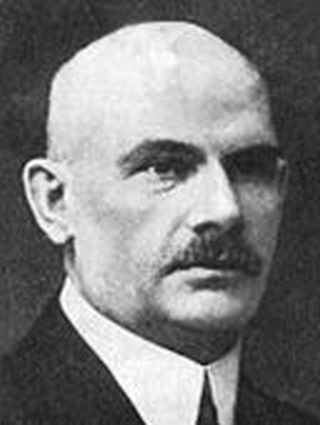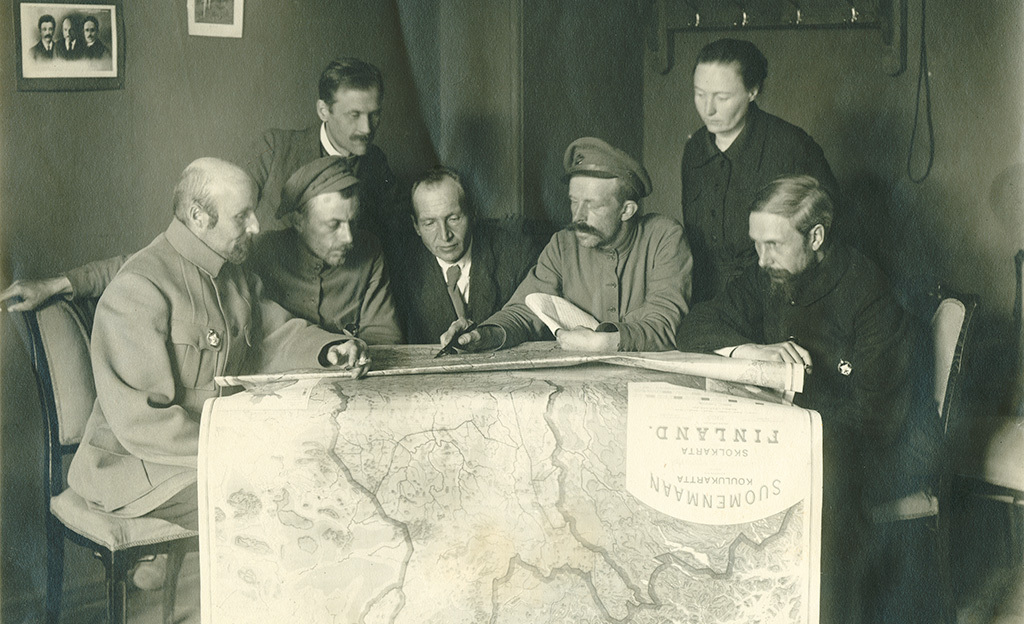|
List Of Speakers Of The Parliament Of Finland
The speaker of the Parliament of Finland ( Finnish ''eduskunnan puhemies'', Swedish ''riksdagens talman''), along with two deputy speakers, is elected by Parliament during the first plenary session each year. Speakers are chosen for a year at a time. In addition to their preparing the work in plenary sessions the speakers also play a key role in Parliament's international co-operation, which includes visits by speakers and international delegations as well as participation in numerous interparliamentary organisations. The speaker and two deputy speakers are elected by parliament from among its members by secret ballot. After the election the speaker and deputy speakers each make the following solemn affirmation before Parliament: :''"I, ..., affirm that in my office as speaker I will to the best of my ability defend the rights of the people, parliament and the government of Finland according to the Constitution."'' Formally, the speaker ranks second in the protocol, after the ... [...More Info...] [...Related Items...] OR: [Wikipedia] [Google] [Baidu] |
Jussi Halla-aho
Jussi Kristian Halla-aho (; born 27 April 1971) is a Finnish politician, currently serving as the Speaker of the Parliament of Finland since 2023. Halla-aho has served as a member of the Parliament of Finland from 2011 to 2014 and again since 2019, and as the leader of the Finns Party from 10 June 2017"Jussi Halla-aho elected Finns Party leader" Yle News. 10 June 2017 to 14 August 2021. Previously, between 2014 and 2019, he was a , where he was part of the |
Young Finnish Party
The Young Finnish Party or Constitutional-Fennoman Party ( or ) was a liberal and nationalist political party in the Grand Duchy of Finland. It began as an upper-class reformist movement during the 1870s and formed as a political party in 1894. Background Industrialization and opening of the Finnish economy by Emperor Alexander II gave room for liberal economic thinking. The Young Finns opposed on constitutional basis Russification efforts commenced by Emperor Nicholas II during 1899-1905. During that period various political factions joined the movement and they were held together by a common opponent, the autocratic Russian Empire. The movement separated itself from the main Fennoman movement, the Finnish Party due to political competition between two political generations that had differing views on Finland's constitutional status in the Russian Empire. In 1907, after a general strike that finished the first Russification period and brought parliamentary democracy with unive ... [...More Info...] [...Related Items...] OR: [Wikipedia] [Google] [Baidu] |
Ernst Nevanlinna
Ernst Nevanlinna , originally ''Neovius'', (10 May 1873 – 7 September 1932) was a Finland, Finnish politician. He was born in Pielisjärvi, Lieksa, and was professor of economics in the University of Turku and, from 1921 to 1922, editor in chief of Uusi Suomi daily newspaper. At the time, Uusi Suomi was the official newspaper of the conservative Finnish National Coalition Party (Finland), National Coalition Party. He was a member of the Senate of Finland as well as of the parliament from 1907 to 1913 and from 1916 to 1922 and Speaker of the Parliament of Finland in 1918. He died in Helsinki, aged 59, and is buried in the Hietaniemi Cemetery in Helsinki. References 1873 births 1932 deaths People from Lieksa People from Kuopio Province (Grand Duchy of Finland) Finnish Party politicians National Coalition Party politicians Finnish senators Speakers of the Parliament of Finland Members of the Parliament of Finland (1907–1908) Members of the Parliament of Finland (1 ... [...More Info...] [...Related Items...] OR: [Wikipedia] [Google] [Baidu] |
Finnish Party
The Finnish Party () was a Fennoman conservative political party in the autonomous Grand Duchy of Finland and independent Finland. Born out of Finland's language strife in the 1860s, the party sought to improve the position of the Finnish language in Finnish society. Johan Vilhelm Snellman, Yrjö Sakari Yrjö-Koskinen, and Johan Richard Danielson-Kalmari were its ideological leaders. The party's chief organ was the Suometar newspaper, later Uusi Suometar, and its members were sometimes called Suometarians (''suomettarelaiset''). History The party started to form around a core of Fennoman intellectuals in the 1860s, but remained formally unorganized for decades. Improving the status of the Finnish language, especially furthering its use in education, was a central issue from the start. In the 1877–1878 sessions of the Diet of Finland the party attained a leading role among the clergy and the peasantry, which it would hold till 1904. In the 1880s, a faction within the party t ... [...More Info...] [...Related Items...] OR: [Wikipedia] [Google] [Baidu] |
Lauri Ingman
Lars (Lauri) Johannes Ingman (30 June 1868 – 25 October 1934) was a Finnish theologian, bishop and politician. He was born in Teuva. In 1906 he began to serve as the editor of '' Vartija'', a Christian magazine. From 1916 to 1930 he was the professor of practical theology in the University of Helsinki. He was also a member of the conservative National Coalition Party, where he acted as the speaker of the parliament and a minister in several cabinets, and served as the Prime Minister of Finland twice, in 1918–1919 and 1924–1925. In 1930 he was elected Archbishop of Turku, head of the Evangelical Lutheran Church of Finland. He died in Turku Turku ( ; ; , ) is a city in Finland and the regional capital of Southwest Finland. It is located on the southwestern coast of the country at the mouth of the Aura River (Finland), River Aura. The population of Turku is approximately , while t .... Cabinets * Ingman I Cabinet * Ingman II Cabinet References 1868 ... [...More Info...] [...Related Items...] OR: [Wikipedia] [Google] [Baidu] |
Johannes Lundson
Johannes Lundson (12 October 1867 – 11 August 1939) was a Finnish politician of the Young Finnish Party and National Progressive Party. He was born in Leppävirta. Lundson was the Speaker of the Parliament in 1917 and was chairing the session on 6 December 1917 when the declaration of independence was approved. Additionally, he served as Minister of Finance from August 1919 to March 1920. He died in Salo Salo or Salò may refer to: Places Finland *Salo, Finland, a town in Western Finland **Salo sub-region, a subdivision of Finland Proper and one of the Sub-regions of Finland since 2009 *An old name of Saloinen, a former municipality in Ostroboth ..., aged 71. References 1867 births 1939 deaths People from Leppävirta Politicians from Kuopio Province (Grand Duchy of Finland) Young Finnish Party politicians National Progressive Party (Finland) politicians Ministers of finance of Finland Members of the Diet of Finland Speakers of the Parliament of Finland M ... [...More Info...] [...Related Items...] OR: [Wikipedia] [Google] [Baidu] |
Kullervo Manner
Kullervo Achilles Manner (; ; 12 October 1880 – 15 January 1939) was a Finnish and Soviet politician. He was one of the leaders of the Finnish Socialist Workers' Republic. Manner was a member of the Finnish parliament, serving as its speaker in 1917. He was also the chairman of the Social Democratic Party of Finland between 1917 and 1918. During the Finnish Civil War, he led the Finnish People's Delegation, a leftist alternative to the established Finnish government. After the war, he escaped to Soviet Russia, where he co-founded the Finnish Communist Party. It is said if the Red Guards had won the Civil War, Manner might have risen to the position of the "Leader of the Red Finland". Early life Manner was born a minister's son in Kokemäki. His father Gustaf Manner worked in various parishes, including those of Lappi and Vampula. Kullervo's mother was Alma Limón, daughter of pastor Johannes Limón. After graduating from high school in 1900, Manner worked as a journalis ... [...More Info...] [...Related Items...] OR: [Wikipedia] [Google] [Baidu] |
Kaarlo Juho Ståhlberg
Kaarlo Juho Ståhlberg ( , ; 28 January 1865 – 22 September 1952) was a Finnish jurist and academic who was one of the most important pioneers of republicanism in the country. He was the first president of Finland (1919–1925) and a liberal nationalist. Ståhlberg was an important figure in the drafting of Finland's republican constitution. As a jurist, he anchored the state in liberal democracy, guarded the fragile germ of the rule of law, and embarked on internal reforms. In implementing the form of government of 1919, Ståhlberg piloted an independent Finland towards acting in world politics; in presidential-led foreign and security policy, he relied on international law and diplomacy. It was only after the opening of private archives of President J. K. Paasikivi that it was realized that Ståhlberg had a very significant political role as an “ éminence grise” until his death. He was asked for advice and opinions, which were also followed. Paasikivi highly valued ... [...More Info...] [...Related Items...] OR: [Wikipedia] [Google] [Baidu] |





